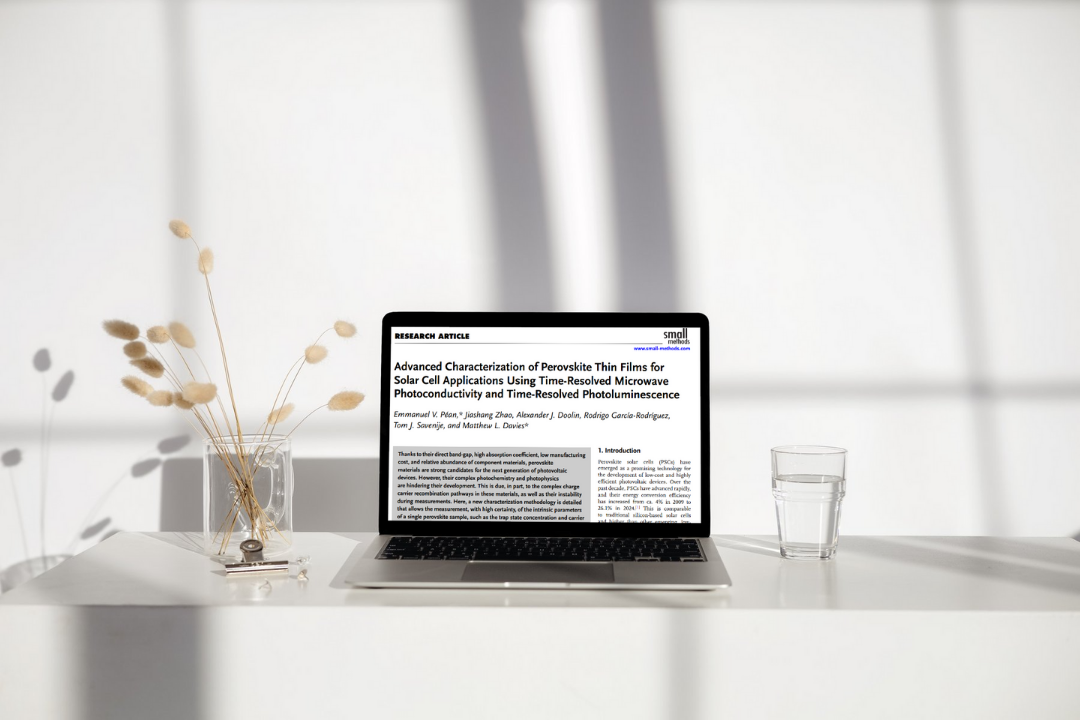APOLLO paves the way for safer BIPV
As part of the APOLLO project, researchers from Swansea University and Delft University of Technology (TU Delft), led by Emmanuel V. Péan, have developed a cutting-edge hybrid methodology to better understand and improve perovskite solar cells (PSCs) for building integration.
This breakthrough combines time-resolved microwave photoconductivity with time-resolved photoluminescence, enabling faster and more accurate measurements of key material properties—such as carrier mobility and trap density—without damaging sensitive perovskite materials.
Beyond advancing testing methods, the study also demonstrates the potential of greener solvent systems like DMPU, ethanol, and dimethyl carbonate as alternatives to commonly used but hazardous solvents. While efficiencies are currently slightly lower, the long-term performance is comparable, opening the path towards safer and more sustainable industrial practices.
By linking scientific excellence with practical application, this innovation strengthens the role of PSCs in building-integrated photovoltaics (BIPV) and supports Europe’s transition towards climate-neutral, energy-positive buildings.

